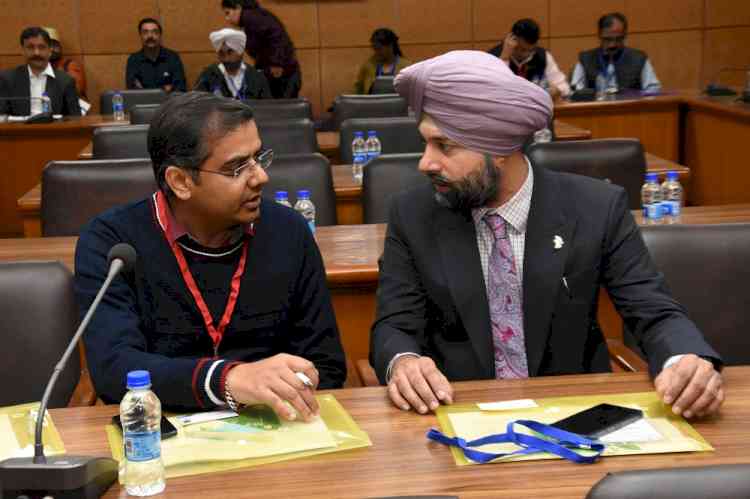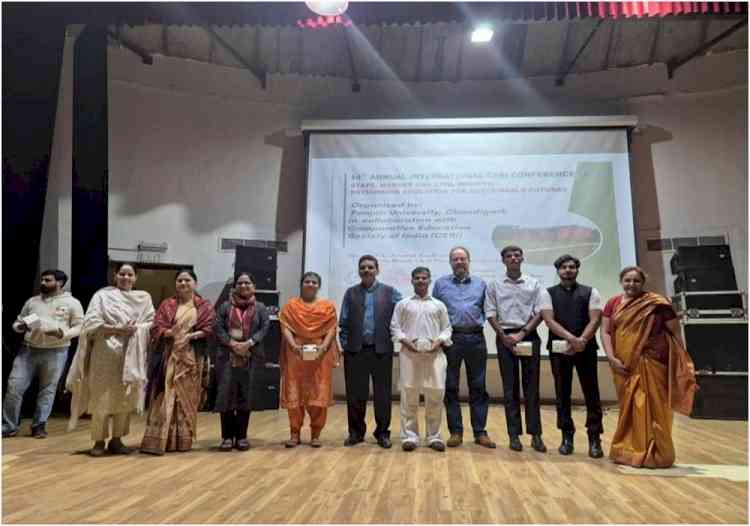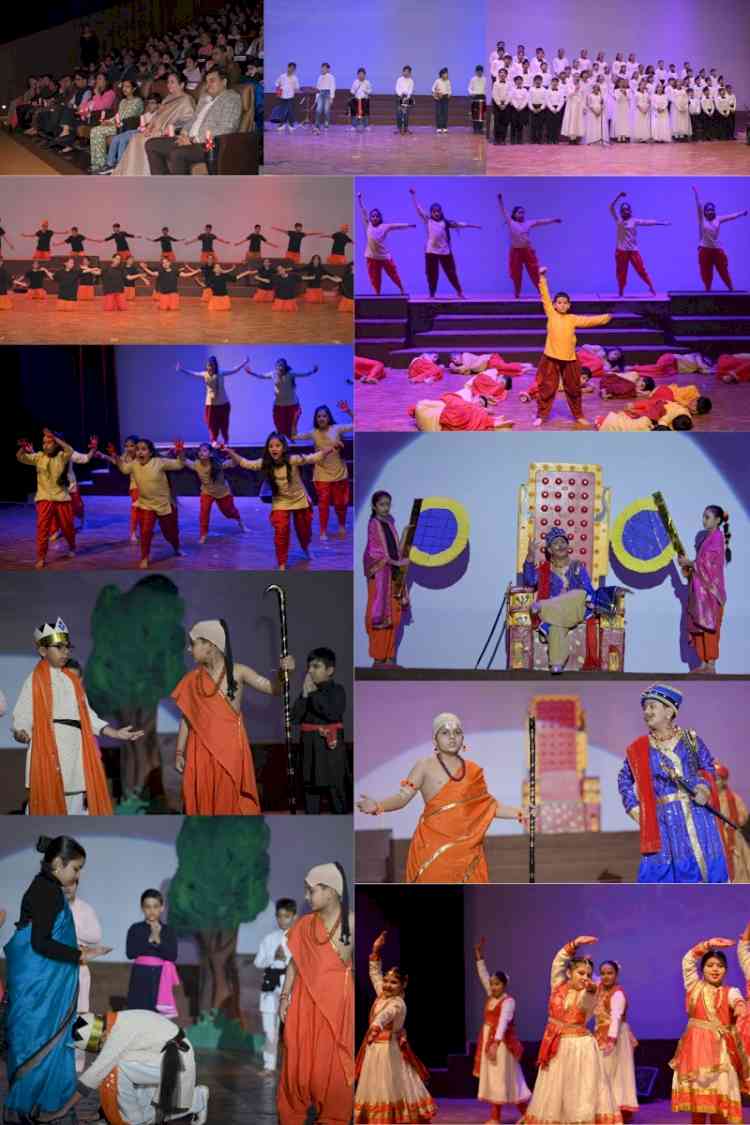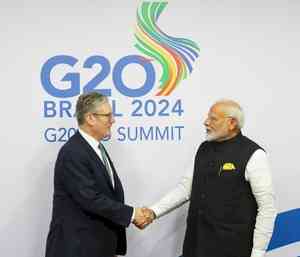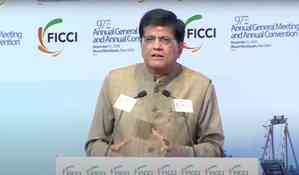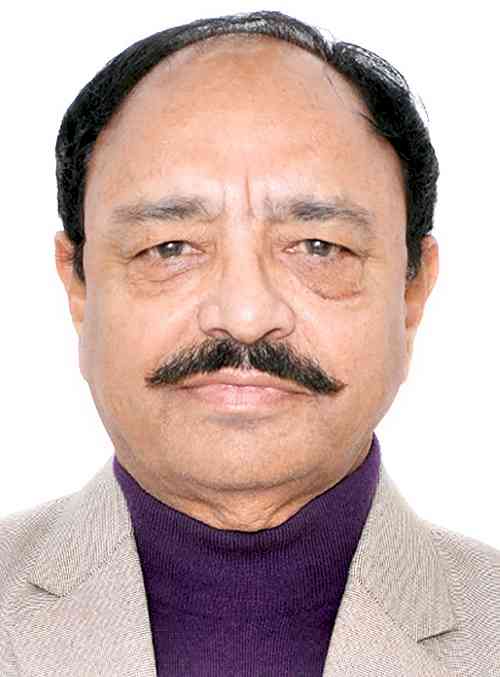KMV students assemble and design five working drones during six days boot camp at KMV
Kanya Maha Vidyalaya (Autonomous) has organised a 6-day intensive bootcamp on Drone Fundamentals: Assembly to Applications. It is an initiative under the project Capacity Building for Human Resources in unmanned Aircraft systems (Drone and related technology) sponsored by Ministry of Electronics and Information Technology (MeitY). The boot camp was organised by Department of Sciences of KMV.
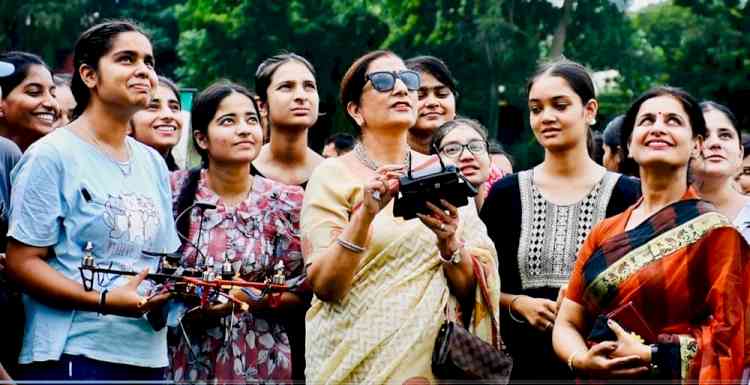
Jalandhar, September 26, 2024: Kanya Maha Vidyalaya (Autonomous) has organised a 6-day intensive bootcamp on Drone Fundamentals: Assembly to Applications. It is an initiative under the project Capacity Building for Human Resources in unmanned Aircraft systems (Drone and related technology) sponsored by Ministry of Electronics and Information Technology (MeitY). The boot camp was organised by Department of Sciences of KMV.
During the course of the boot camp, assembly and flying of drones witnessed the success of the event as on the fourth day of the Bootcamp, students were engaged in an immersive and informative experience, guided by resource persons Captain Ashnee Kumar Acharya, Shivangi Sachdeva, and Dr. Sandeep Sharma. The activities focused on building practical skills, offering participants an opportunity to delve into the intricacies of drone assembly, flight operations, and air traffic control (ATC) procedures.
The morning session commenced with a hands-on training in quadcopter assembly. Students were divided into four groups, each equipped with a drone kit. Captain Ashnee Kumar Acharya led the session, introducing the process through a video demonstration that outlined the detailed assembly steps. Under the guidance of Captain Acharya and Dr. Sandeep Sharma, participants began by soldering the electronic speed controllers (ESCs) and the power module to the power distribution board. This hands-on activity provided students with a deep understanding of the technical components involved in drone construction. In the second session, students took a research-driven approach, investigating various alternatives for ESCs, power modules, telemetry, and GPS systems. This not only enhanced their technical knowledge but also prepared them for more complex tasks. The final morning session was led by Captain Ashnee and focused on ATC procedures and radio telephony. Captain Acharya covered critical topics such as radio telephony techniques, RT frequency spectrum management, standard aviation terminology, and flight planning procedures.
The afternoon session resumed with Captain Acharya taking charge of the practical aspects of drone operations, focusing on the connection between the drone and its remote controller (transmitter) via Ground Control Station (GCS) software. He began by introducing students to the GCS software, elaborating on its essential role in drone management. Participants were taken through a step-by-step process to establish a connection between the drone and the transmitter, followed by an in-depth explanation of key GCS features such as flight tracking, data logging, and emergency management protocols. The day’s final session provided students with the chance to apply their learning in a hands-on practice flight. After successfully calibrating their drones, participants engaged in practical flying sessions, gaining invaluable experience in drone handling and manoeuvring.
Principal Prof Dr Atima Sharma Dwivedi averred that the combination of technical instruction, hands-on assembly, and practical flight training of the Bootcamp provided participants with comprehensive exposure to both the theoretical and practical aspects of drone technology and operations. The interactive and detailed sessions, were instrumental in deepening students’ understanding of drones, from their internal mechanics to real-world flight procedures.
Principal lauded the efforts of Dr Neetu Verma, Head, PG Department of Physics for successfully organising the camp.


 Rajat Kumar
Rajat Kumar 
